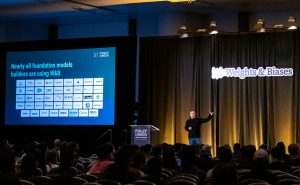SAN FRANCISCO — In a groundbreaking stride towards advancing artificial intelligence applications, OpenAI announces that its GPT-3 technology is now integral to more than 300 diverse applications worldwide. This achievement comes just nine months after the launch of the OpenAI API, marking a rapid adoption and integration of cutting-edge AI capabilities into various sectors.
The OpenAI API, a cornerstone of this innovation, has facilitated the creation of applications spanning productivity tools, education, creativity, and gaming industries. Developers globally have embraced the platform, leveraging its capacity to generate an average of 4.5 billion words daily. This robust usage underscores GPT-3’s pivotal role in enhancing natural language understanding and text generation tasks.
The API allows for nuanced programming through simple text prompts, enabling applications to interpret and respond to natural language queries effectively.

Among the trailblazing applications, Viable stands out for revolutionizing customer insights. By employing GPT-3, Viable analyzes diverse sources of customer feedback—such as surveys, help desk tickets, and reviews—to distill valuable insights swiftly. This capability aids businesses in understanding customer sentiments and preferences comprehensively.

Fable Studio, known for its immersive interactive narratives, integrates GPT-3 to create lifelike characters capable of engaging in natural conversations. This innovation has not only enhanced storytelling in virtual environments but also garnered acclaim at prestigious events like the Sundance Film Festival.

Algolia, through its Answers product, leverages GPT-3 to deliver precise semantic search results, significantly improving user interaction by providing relevant information quickly and accurately. This breakthrough highlights GPT-3’s versatility in enhancing search functionalities across extensive data sets.
Continuing its commitment to innovation, OpenAI has expanded the API’s capabilities with new endpoints like Answers and Classifications. These enhancements empower developers to build sophisticated applications without extensive fine-tuning, thereby democratizing access to AI-driven solutions across various fields.
Safety remains a top priority for OpenAI, which has implemented rigorous measures to prevent misuse of its technology. These include content filters and proactive monitoring systems to ensure responsible deployment across all applications.
The burgeoning developer community, spanning continents, underscores OpenAI’s democratization of AI technology. Developers with diverse backgrounds have found success in harnessing GPT-3, turning novel ideas into functional applications that address real-world challenges.
Looking ahead, OpenAI invites developers to explore new frontiers in AI applications, particularly in sectors like healthcare, climate science, and educational technology. The organization actively supports initiatives through hackathons and partnerships, fostering a collaborative environment for innovation.
As OpenAI continues to expand its impact globally, the call for developers to join its Applied AI team highlights ongoing opportunities to shape the future of AI-powered solutions. For more information on how to get involved, visit openai.com or contact community@openai.com.
In summary, OpenAI’s GPT-3 stands at the forefront of AI innovation, driving transformative changes across industries and empowering developers worldwide to create the next generation of intelligent applications.



















